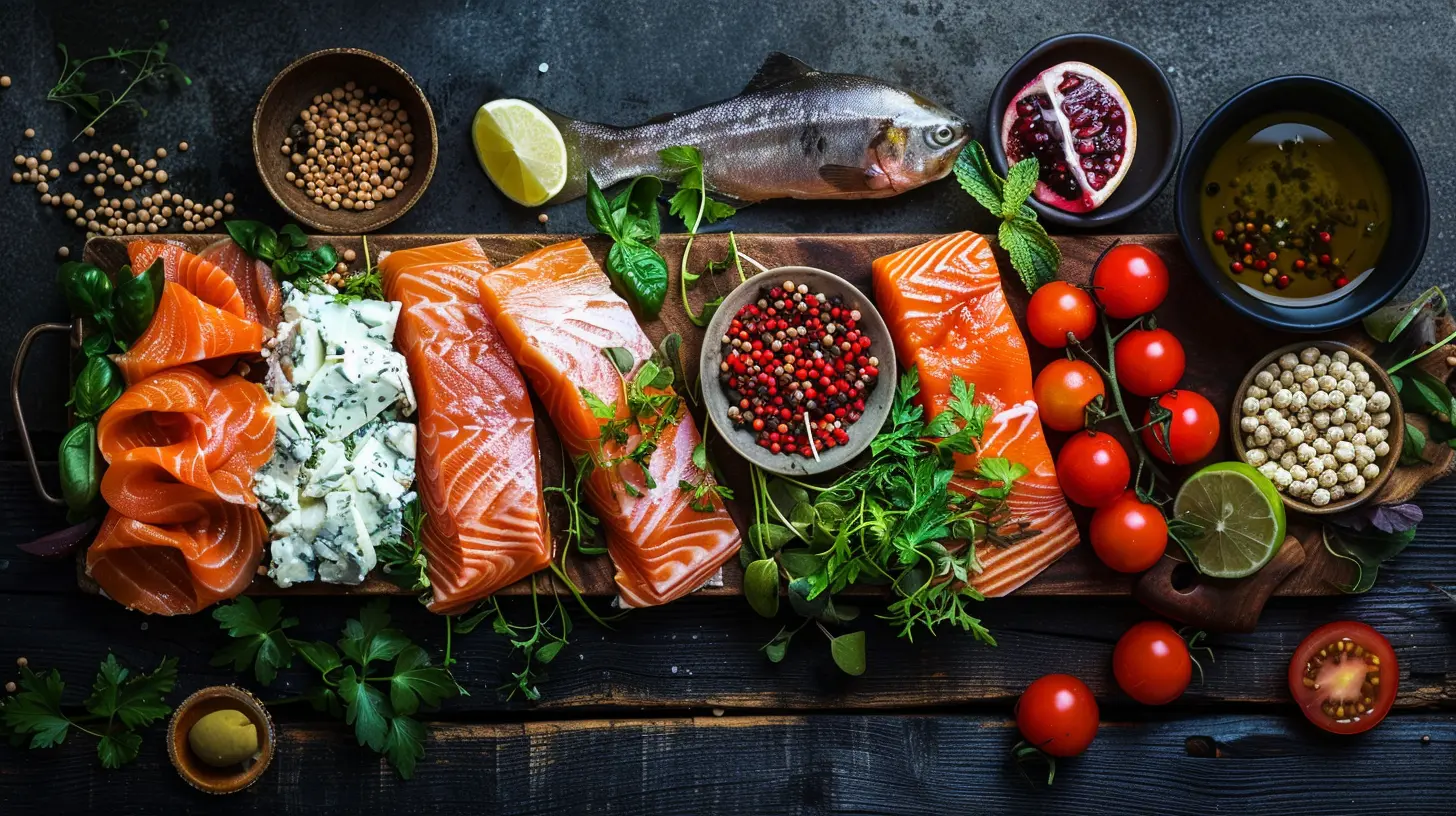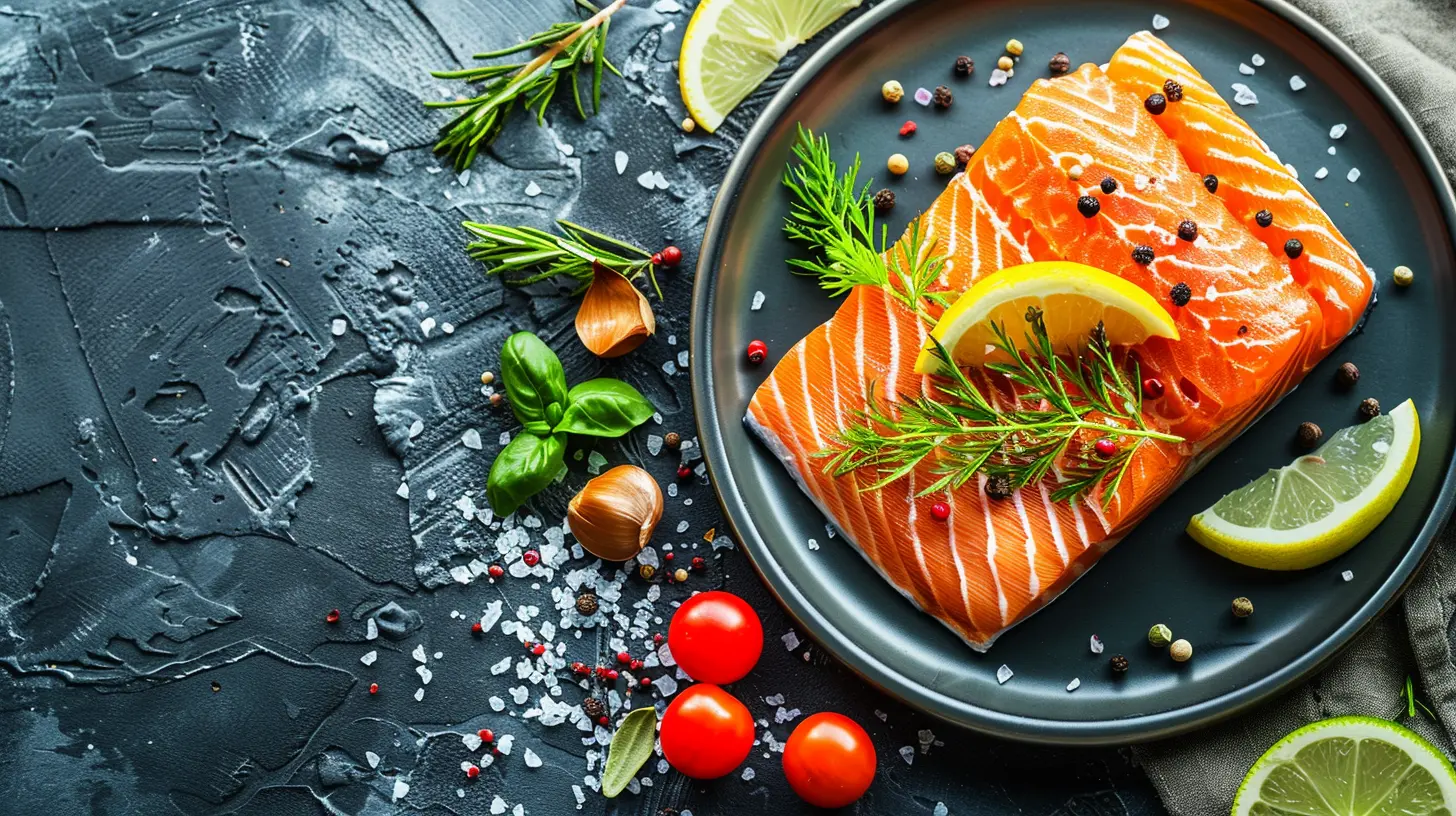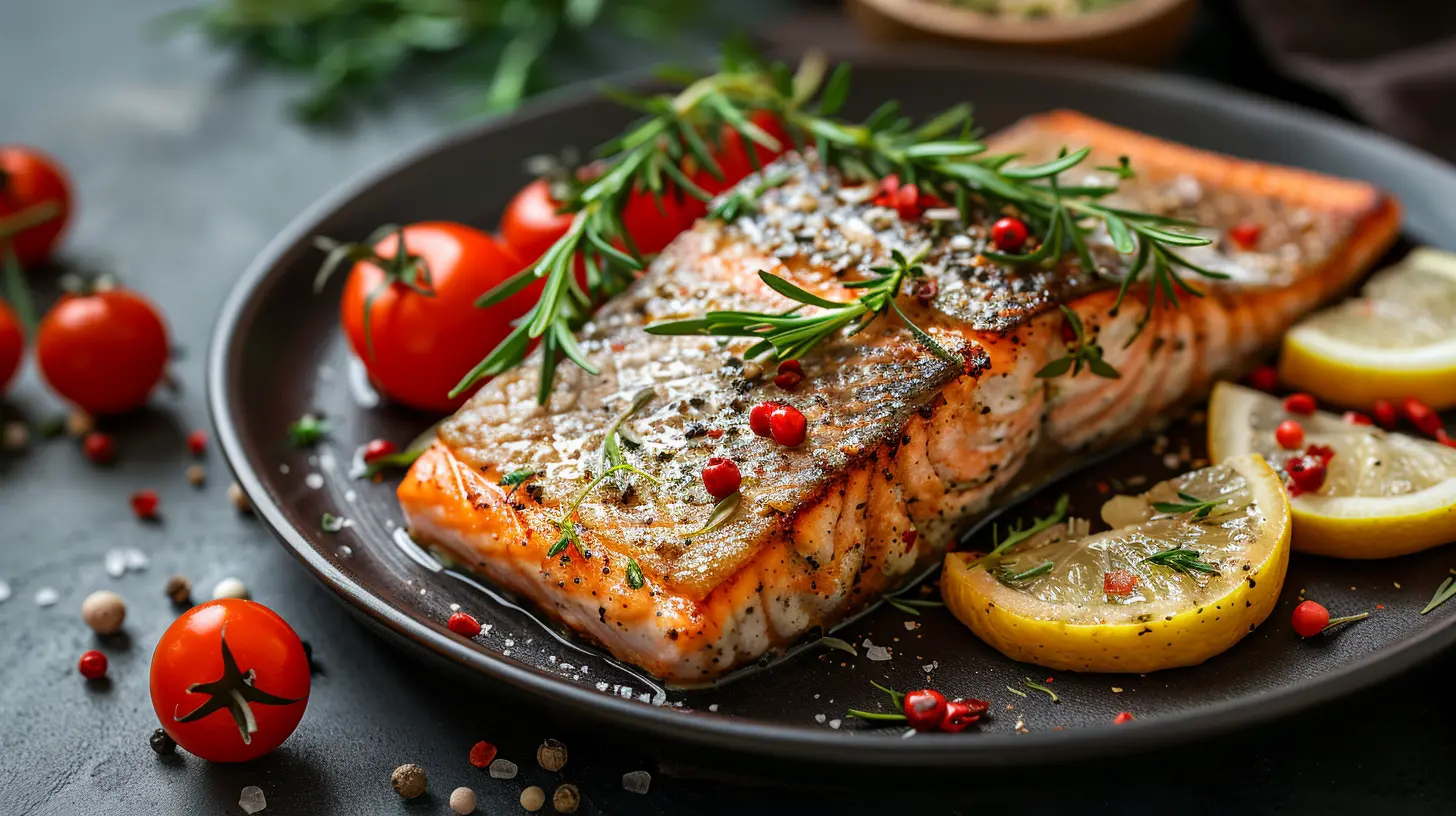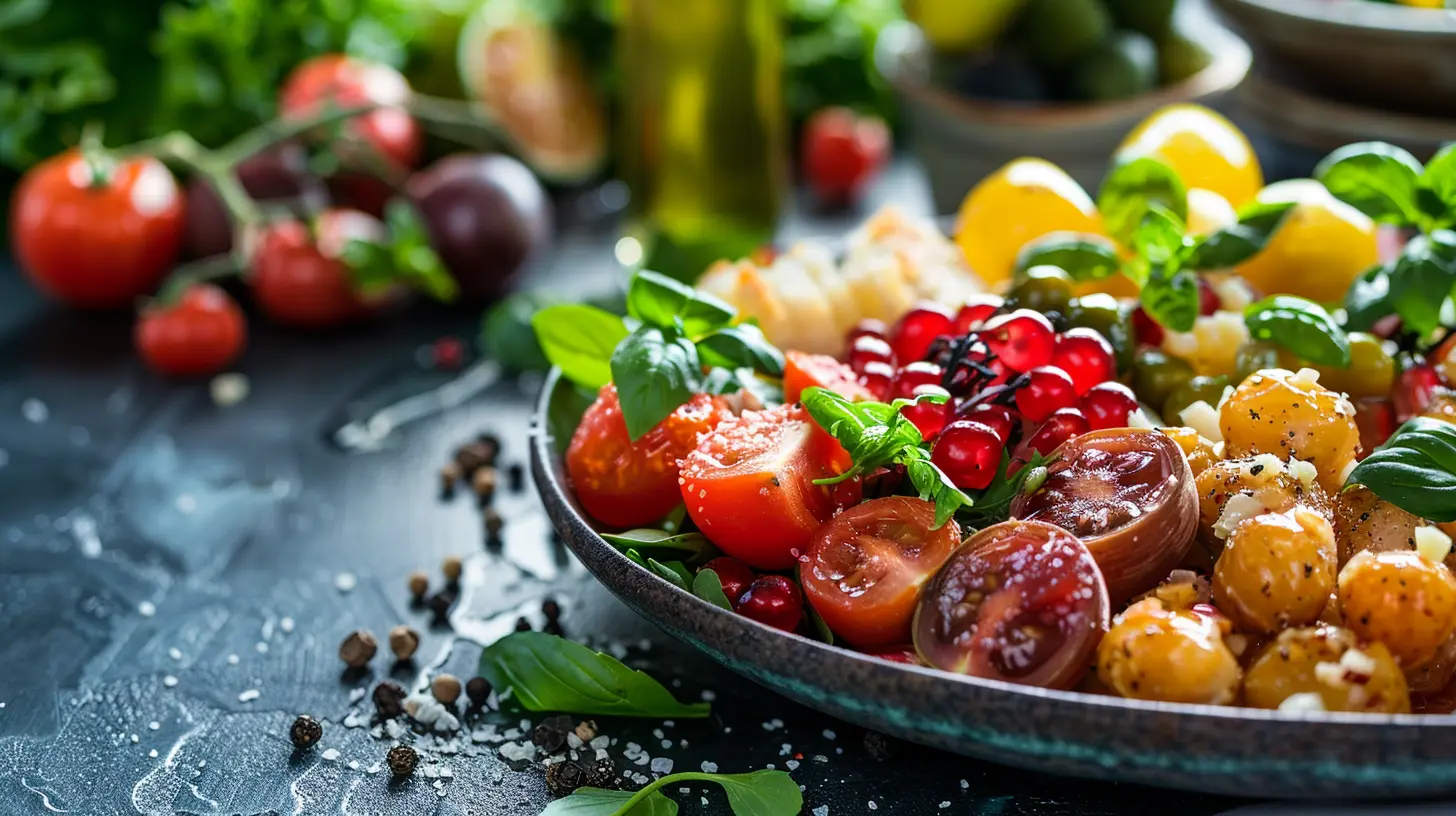Nordic Flavors on a Plate: Exploring New Scandinavian Cuisine
15 April 2025
When you think of Scandinavian food, what comes to mind? Maybe hearty meatballs, fresh seafood, or rich rye bread? While those are classic staples, a revolution has been brewing in Scandinavian kitchens. A culinary movement known as New Nordic Cuisine has taken the world by storm, transforming traditional regional ingredients into something fresh, modern, and absolutely mouthwatering.
So, what exactly is this Nordic food revolution all about? And why should you care? Let's dig in and uncover the flavors, philosophy, and must-try dishes of New Scandinavian Cuisine! 
The Birth of New Nordic Cuisine
To understand New Nordic Cuisine, we have to rewind to 2004. That’s when a group of ambitious Scandinavian chefs—led by Danish powerhouse René Redzepi of Noma—crafted the New Nordic Manifesto. It was a statement of intent:- Use local, seasonal ingredients
- Promote sustainability and foraging
- Highlight traditional Nordic flavors with a modern twist
The idea was simple yet revolutionary. Instead of relying on imported ingredients, why not celebrate the bounty of the Nordic region? That meant fresh seafood, wild herbs, berries, root vegetables, and even reindeer or fermented foods.
The result? A cuisine that is both deeply rooted in Nordic traditions and completely reimagined for the modern palate. 
Key Ingredients That Define New Nordic Cuisine
New Nordic Cuisine isn't just about technique—it's about showcasing the best Nordic ingredients. Here are some of the key players you’ll find on menus across Scandinavia:1. Foraged Herbs & Berries
The Scandinavian wilderness is packed with edible treasures. Wild blueberries, lingonberries, and cloudberries add bursts of sweetness, while herbs like wood sorrel and juniper bring earthy, aromatic notes.2. Fresh & Fermented Seafood
With the Baltic Sea, North Atlantic, and Arctic waters at their doorstep, Nordic chefs embrace seafood in all forms. Pickled herring, smoked salmon, and fermented trout (known as rakfisk in Norway) are just the beginning.3. Rye & Sourdough Breads
Forget plain white bread—Scandinavians love their dark, dense loaves. Traditional rugbrød (rye bread) is a staple, often served with butter, fish, or cheese.4. Game Meats & Reindeer
Meat-lovers, rejoice! Nordic chefs incorporate wild meats like venison, elk, and even reindeer, typically served smoked or slow-cooked for deep flavor.5. Dairy Delights: Skyr & Butter
Skyr (Icelandic yogurt) is packed with protein and has a creamy, slightly tangy taste. High-quality Nordic butter, rich and decadent, elevates every dish it touches.6. Root Vegetables & Cabbage
Since the Nordic climate isn’t ideal for tropical produce, locals rely on hardy vegetables like potatoes, beets, carrots, and cabbage to add texture and sweetness to their dishes.7. Pickling & Fermentation
Long winters mean preservation is a must. Pickled vegetables, fermented fish, and even aged dairy products are common in Nordic kitchens, adding both umami and probiotics to the diet.
Must-Try Dishes in New Scandinavian Cuisine
Now that you know the key ingredients, let’s talk about the star dishes you need to experience when diving into Nordic flavors:1. Smørrebrød (Open-Faced Sandwiches)
A classic Danish lunchtime favorite, smørrebrød features dense rye bread topped with everything from pickled herring to roast beef, shrimp, or pate—always beautifully arranged and packed with flavor.2. Gravad Lax (Cured Salmon)
Sliced thin and flavored with dill, salt, and sugar, gravad lax is a must-try. Served with mustard sauce and dark bread, it’s a simple yet elegant dish that showcases the beauty of fresh ingredients.3. Kroppkakor (Swedish Potato Dumplings)
These hearty dumplings, usually filled with pork and onion, are the ultimate comfort food, perfect for a cold Scandinavian evening.4. Kolasnittar (Caramel Cookies)
For those with a sweet tooth, Swedish kolasnittar (buttery caramel cookies) offer a delightful crunch with a rich, toffee-like flavor.5. Rømmegrøt (Norwegian Sour Cream Porridge)
Thick, creamy, and slightly tangy, this traditional Norwegian dish is made with sour cream, flour, and butter, then topped with cinnamon and sugar for a cozy, indulgent treat.
The Philosophy Behind New Nordic Cuisine
Beyond the ingredients and dishes, New Nordic Cuisine is a mindset. It’s about celebrating what the land provides while ensuring sustainability for future generations.1. Hyper-Local Sourcing
Gone are the days of importing exotic ingredients. New Nordic chefs are all about farm-to-table dining, sourcing everything as locally as possible—from vegetables to dairy and even wild herbs.2. Sustainability & Ethical Eating
Protecting the environment is a priority, which is why Nordic chefs focus on sustainable fishing, organic farming, and reducing food waste. The goal? A low-impact, high-flavor way of cooking.3. Minimalism Meets Innovation
Like Nordic design, the region’s cuisine embraces simplicity with a modern twist. Ingredients are often served in their purest form, but with innovative techniques that enhance their natural flavors.Where to Experience New Nordic Cuisine
If this culinary movement has piqued your interest, you’re probably wondering where to taste it firsthand. Here are a few must-visit spots:1. Noma (Copenhagen, Denmark)
Often ranked among the world’s best restaurants, Noma is the epicenter of New Nordic Cuisine, blending foraged ingredients with cutting-edge techniques.2. Fäviken (Sweden)
Though now closed, this legendary restaurant was known for serving hyper-local dishes straight from the surrounding fields and forests. Chefs worldwide still draw inspiration from its approach.3. Maaemo (Oslo, Norway)
One of Norway’s top fine-dining spots, Maaemo is all about organic, locally sourced Nordic ingredients turned into stunning, high-concept dishes.4. Dill (Reykjavik, Iceland)
Iceland’s first Michelin-starred restaurant, Dill, offers a fresh and exciting take on traditional Icelandic flavors like lamb, fish, and wild berries.Bringing New Nordic Cuisine into Your Own Kitchen
Not planning a trip to Scandinavia anytime soon? No worries! You can still bring a taste of New Nordic Cuisine into your home. Here’s how:- Embrace local, seasonal produce – Shop at farmers’ markets and cook with fresh, regional ingredients.
- Experiment with fermentation – Try making your own pickled vegetables or fermented fish at home.
- Simplify your plating – Let ingredients shine with minimal seasoning and simple presentations.
- Add Nordic flavors to your meals – Use ingredients like dill, juniper, rye, and lingonberries to enhance everyday dishes.
Final Thoughts
New Nordic Cuisine is more than just food—it’s a philosophy, an experience, and a connection to nature. Whether you’re dining at a Michelin-starred restaurant in Copenhagen or experimenting with fermented veggies in your own kitchen, this movement is all about elevating simple ingredients into something unforgettable.So, are you ready to taste the magic of Nordic flavors on a plate? One bite, and you might just find yourself falling in love with the fresh, clean, and innovative tastes of Scandinavia.
all images in this post were generated using AI tools
Category:
Culinary AdventuresAuthor:

Pierre McKinney
Discussion
rate this article
4 comments
Kevin Pope
Nordic cuisine: where even the fish has a sense of humor! Dive into deliciousness and let those flavors tickle your taste buds!
April 22, 2025 at 3:46 PM

Pierre McKinney
Thank you! Nordic cuisine truly brings joy to the palate, blending humor and flavor in every dish!
Emmett McConkey
This article beautifully captures the essence of modern Scandinavian cuisine, showcasing its unique flavors and innovative techniques. A must-read for any food lover eager to explore Nordic culinary delights!
April 18, 2025 at 4:06 PM

Pierre McKinney
Thank you so much for your kind words! I'm glad you enjoyed the exploration of Scandinavian cuisine. Happy cooking!
Elizabeth McClary
Thank you for this insightful article! The exploration of new Scandinavian cuisine truly highlights the unique flavors and culinary creativity of the Nordics. I'm excited to try some of these dishes!
April 18, 2025 at 4:14 AM

Pierre McKinney
Thank you for your kind words! I'm glad you found the article inspiring—enjoy your culinary adventures with Nordic cuisine!
Maddison Klein
This article beautifully encapsulates the essence of New Scandinavian Cuisine, showcasing its innovative use of local ingredients and sustainable practices. However, a deeper exploration of the cultural narratives behind these dishes would enhance the reader's appreciation, connecting the flavors on the plate to the rich traditions and stories of the Nordic region.
April 15, 2025 at 4:58 PM

Pierre McKinney
Thank you for your insightful feedback! I appreciate your suggestion to delve deeper into the cultural narratives, and I'll consider that for future discussions on New Scandinavian Cuisine.



